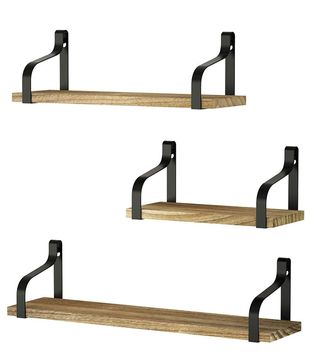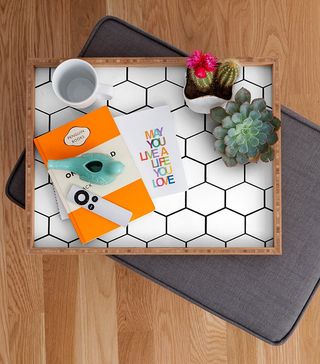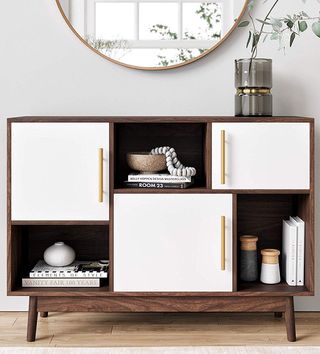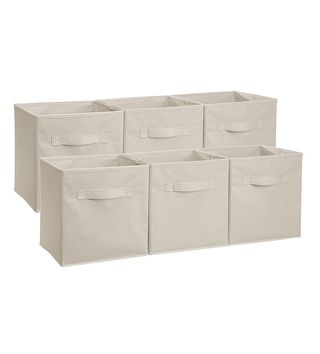The Room-by-Room Guide to Setting Up a More Productive and Healthier Home
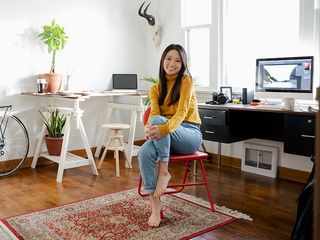
For many people, there's really no place like home. If that's true for you, you're going to want to make it the best it can be because you do a lot there. You get rest and relaxation; you work on projects (and might even work from home); you entertain; you do chores and cook; you might even raise a family there—in short, everyday life happens at home, with some milestones or momentous occasions in between.
But if your home isn't set up to help you go about your daily life, it can cause a lot of unnecessary stress, which can lead to bigger health problems if left untreated, such as anxiety or depression, or even high blood pressure, heart disease, obesity, and diabetes.
We've written about the effects clutter has on your health and shared our favorite buys for a healthier kitchen and bedroom, but what about setting up and organizing your home with health and productivity in mind? We asked the experts to give us their best tips roo mby room. Here's what they had to say.
In the Living Room

Whether you live with other people or not, the living room can be a dumping ground for clutter, which might make it harder to find things. This scenario might seem familiar to you: You're running out the door because you're already late to work, but now you have to turn your whole living room inside out because you can't find your keys.
To streamline your living room, make sure everything in it has a "home," recommends Julie Morgenstern, an organizing and productivity expert and best-selling author of Time to Parent: Organizing Your Life to Bring Out the Best in Your Child and You. You won't keep losing the remote to your Apple TV if you know it's always stored in a tray on your coffee table. It also might even be easier to store different categories of items by zone. Store only books on the bookshelves, or gadgets by the TV console.
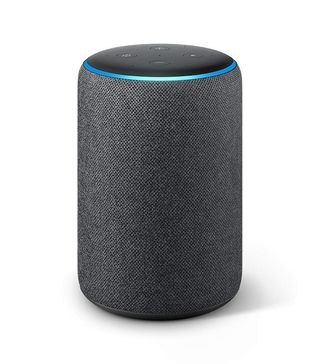
As for tech devices, like a Google Home or Amazon Echo, Morgenstern says those are okay to have on display. "If that device can turn on the TV, turn on the music, etc., it's a great thing to have that doesn't take up a lot of space and is able to do a lot for you," she says. "Plus, it can save you some space since there's not a lot of materials associated with those things. It's just the device."
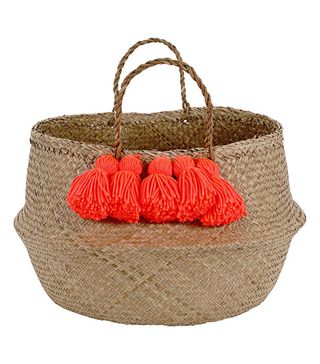
You might also want to make some edits to your living room, too. "Take stock of what items are living in your living room and decide what can be stored elsewhere," says Clea Shearer, co-founder of The Home Edit. "Large floor baskets are one of our favorite living room storage solutions because they allow you to easily store items such as blankets and pillows in the living room, with the added benefit of making a room look polished and stylized."
In addition to baskets, Shearer and her co-founder, Joanna Teplin, recommend other storage options like trays to corral items and wall storage like modular systems, shelving, or hooks (which are especially helpful if you're working in a small space).
If you share your home with others, make sure to include them when you create these systems and zones, especially in shared spaces like the living room, kitchen, and bathroom.
In the Kitchen
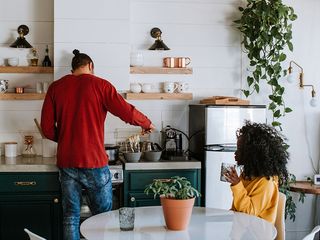
Like the living room, the kitchen can also be a "command center" of sorts for many people. You might gather there with your family or roommates, do work there, and obviously you cook and clean. But if your kitchen becomes too cluttered, the less likely you'll want to cook and the more likely you'll be opting for greasy takeout.
Morgenstern recommends applying her "zones" idea to the kitchen, too. Store seasonings, mixing bowls, cutting boards, and knives in the cabinets above and below the countertop where you prep food. For easy cleanup, stash your dishes near the sink and dishwasher (if you have one) so they're easy to unload, dry, and put away. Put your pots, pans, spatulas, etc., near the stove. If you use your kitchen to store mail and other paperwork, get a bulletin board or organizing trays so you can easily find the important stuff.
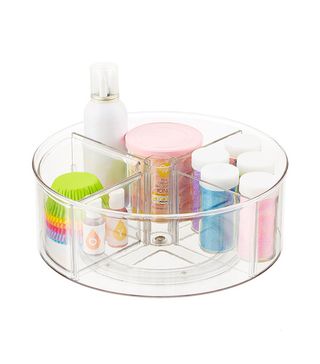
And when you set up zones, that might help promote healthy eating. Shearer and Teplin say it's important to set up systems that streamline healthy eating with your routine. "For instance, setting up a wellness station where all of your vitamins and supplements are all in the same place and easy to access," Teplin says. "Storing your items in labeled canisters and bins by category will help with that. When it comes to food, it's the same story. If you keep your healthy food visible and store all of your not-so-healthy items on the top shelf, you'll be more likely to grab for the healthier items."
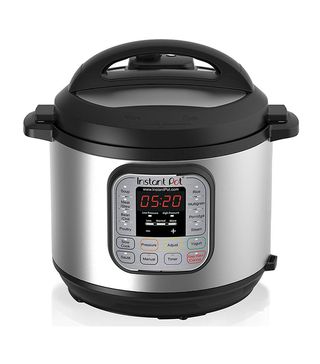
With the rise of kitchen gadgets and appliances like the Instant Pot and Air Fryer, your countertop space can shrink. Store each one according to use. "For the ones that you use regularly, store in a cabinet close to where you use it," Shearer says. "If you don't use an appliance that often, store on the top shelf of your pantry or nearby closet and access it when necessary."
In the Dining Room
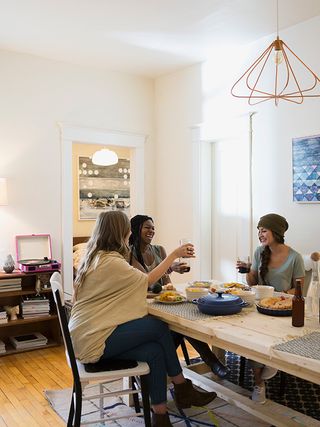
The dining area—whether it's a separate room, nook, or just a table—can be a multipurpose space, too. A lot of us use the spot to do work, some might even use it for side hustles or hobbies, like crafting. When the stuff piles up, you won't have a place to eat, so you might post up on the couch to eat your meal, which could lead to distracted eating. Research has shown that not paying attention to your food can cause you to eat more than recommended.
This can be easily fixed. Morgenstern says you should keep the surface clear when you're not using it for other purposes—she recommends investing in a credenza or cabinet to hide all your stuff. Storage bins can work, too.
In the Bedroom
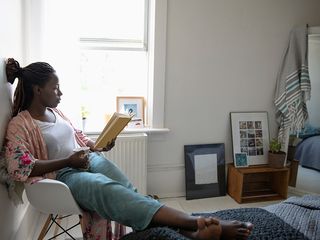
The bedroom is for sleep, and if you're not getting good sleep, that can lead to short-term problems like a lack of alertness, impaired memory, relationship stress, and greater likelihood for car accidents. Long-term problems can include high blood pressure, diabetes, heart attack, failure, or stroke.
While we've learned that how you get good-quality sleep depends on personal preferences, there are a few things you can do to streamline and organize your bedroom that may be a benefit.
"A bedroom should hold the essentials, and that's it," says Teplin. "There shouldn't be a ton of decorative items or storage shelving. The less you can store in your bedroom, the better."
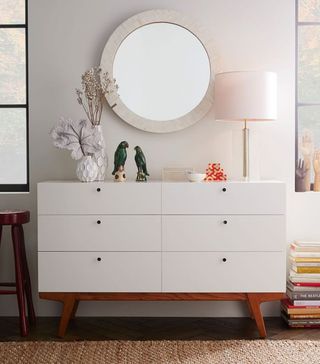
You should also keep in mind that your bedroom is also used for dressing, too, so you might want to clear your piles of clothes and shoes if it's disrupting the "sanctuary" feel of your room. Morgenstern suggests setting up a "dressing area" or zone int one part of your bedroom, so you keep everything that you need to get dressed there. "If you can, have your dressers near your closet so you're not running across the bedroom back and forth to find things and put them away because you won't, and then you're going to leave things out and it's not as restful," she says. It can also be helpful to put your mirror, jewelry storage, and other dressing accessories in that area, too.
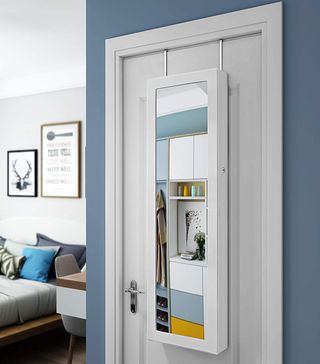
And all three experts agree that the bedroom shouldn't be used for work, or even household tasks or chores (like paperwork). "I've not yet met a person who has that [in their space] and finds it a restful place to be because there's just a pile of stuff that needs your attention," Morgenstern says. "How are you supposed to relax if your to-do list is physically in your space with you?"
In the Bathroom
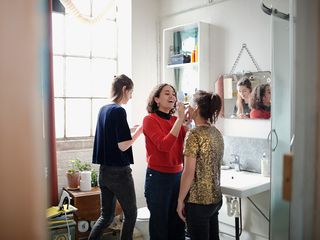
Are bathrooms (and their storage) getting smaller, or are our beauty and wellness collections getting bigger? Whatever the case, the bathroom can get pretty cramped. And when it does, it makes it harder to do anything in it (like getting ready before work) and then even harder to clean (well, that's just gross).
Shearer and Teplin suggest finding storage solutions that will streamline your particular routine. "It helps to consider what items you need within your immediate reach and make sure they remain visible and accessible—all the other items can be neatly stowed away," Shearer says. "Items like baskets, dividers, jars, and turntables will help you maximize the space you have and create a system that works for you. We love an aesthetically pleasing space, but just remember—function comes first." Keep the things you use every day out or easily accessible and the other things more hidden.
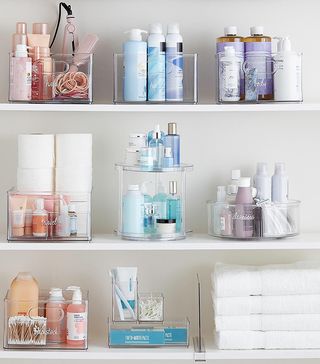
If you share a bathroom with others, Shearer and Teplin recommend designating zones for each person. "If you don't have enough space to claim an entire side of the bathroom, create your own with labeled bins," Teplin says.
And If You Live in a Studio Apartment
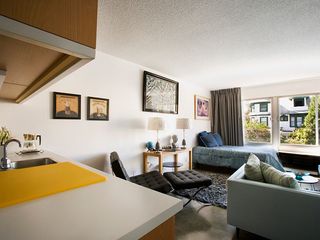
You might have read through this whole story and thought, "What about me and my studio apartment?" Well, the "zones" rule still applies here, too. Think about your sleeping, cooking, eating, doing work, hanging out zones.
Additionally, invest in furniture or products that do double-duty. "Make sure every piece of furniture has storage," Morgenstern says. "End tables in your living room should be storage ones. The coffee table should have storage—not a big, open glass thing. It might look nice in a magazine, but you've got to be more clever than that because you're so limited."
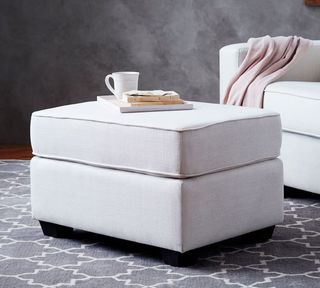
Now that you've got the ideas, it's time to make your home even homier and easier to live in. Think about your own lifestyle and personal preferences and adapt your space to that. The more personalized it is to you, the better.
Next up: These Indoor Plants Will Make Your Space Healthier—and They're Hard to Kill
Disclaimer
This article is provided for informational purposes only and is not intended to be used in the place of advice of your physician or other medical professionals. You should always consult with your doctor or healthcare provider first with any health-related questions.
Sarah is lifestyle writer and editor with over 10 years of experience covering health and wellness, interior design, food, beauty, and tech. Born and raised in Los Angeles, she attended New York University and lived in New York for 12 years before returning to L.A. in 2019.
In addition to her work on THE/THIRTY and Who What Wear, she held editor roles at Apartment Therapy, Real Simple, House Beautiful, Elle Decor, and The Bump (sister site of The Knot).
She has a passion for health and wellness, but she especially loves writing about mental health. Her self-care routine consists of five things: a good workout, “me” time on the regular, an intriguing book/podcast/playlist to unwind after a long day, naps, and decorating her home.
